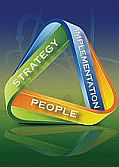Speaker
Paul Thompson
(AWE)
Description
AWE provides technical expertise to the UK Ministry of Defence (MoD) on the verification of nuclear-related treaties or arms control agreements. This Nuclear Treaty Verification programme is divided into two parts: an element that monitors for nuclear testing in support of the Comprehensive Test Ban Treaty Organisation; and an element that conducts research to provide advice on the verification of potential future nuclear-related treaties or agreements.
Under the first programme element, AWE provides the UK’s national capability to monitor, analyse and advise on possible nuclear explosions, using radiochemical analysis and forensic seismology. The former in particular is relevant to Safeguards applications: as a thermal ionisation mass spectroscopy (TIMS) laboratory, AWE has been a member of the IAEA Network of Analytical Laboratories (NWAL) since [insert date]; and more recent capability developments at AWE in the fields of secondary ionisation mass spectroscopy (SIMS) and scanning electron microscopy (SEM) may in the future lead to an expanded contribution to NWAL. The second element of the Nuclear Treaty Verification programme, which looks to possible future verification requirements, provides advice to MoD on the options for conducting verification activities in future, and develops methods and technologies to support those activities. As with AWE’s radiochemistry capability, some or all of these methods and technologies may be transferrable to Safeguards applications.
This paper outlines AWE’s views on some the most significant challenges associated with nuclear treaty verification, along with potential solutions that might meet those challenges. It also highlights some of the research activities within the AWE programme that are aimed at delivering particularly high priority capabilities. Our view on necessary areas for future research is discussed.
| Country or International Organization | UK / AWE |
|---|
Author
Paul Thompson
(AWE)

